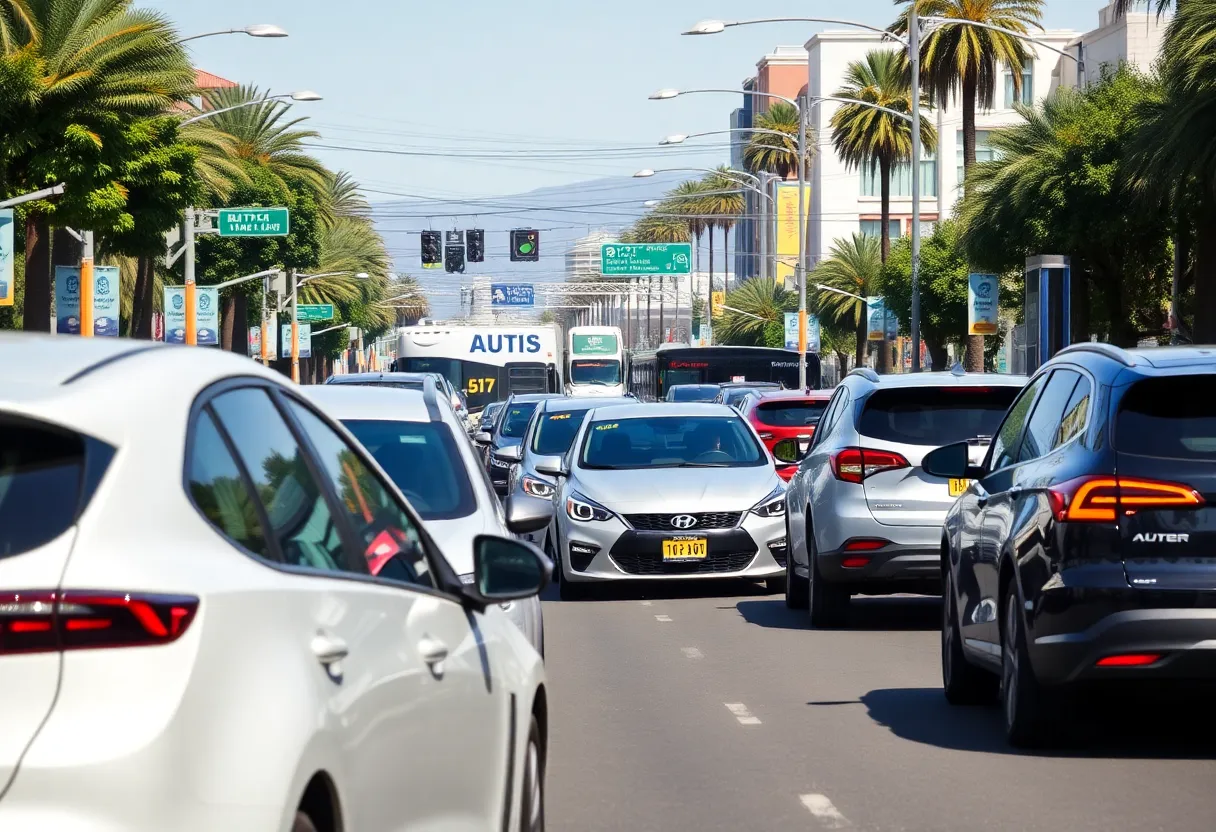News Summary
The House of Representatives has voted 246-164 to block California’s plan to ban the sale of new gasoline-powered vehicles by 2035. This decision contrasts with California’s efforts to combat climate change as other states support the initiative. The Senate’s stance remains uncertain, highlighting a legal dispute over the authority to overturn state climate policies. Various stakeholders, including environmental groups and automakers, continue to voice strong opinions on the implications of this resolution.
California – The House of Representatives voted 246-164 on Thursday to block California’s ambitious plan to ban sales of new gasoline-powered vehicles by 2035. This decision represents a significant move against one of the nation’s most aggressive efforts to combat climate change and promote electric vehicles.
The resolution received backing from 35 Democrats alongside a Republican majority. However, the Senate’s reaction to the House measure is currently uncertain, with no scheduled votes confirmed at this time.
The Senate parliamentarian and the Government Accountability Office have both concluded that Congress does not possess the authority to overturn California’s climate policy, which adds a layer of complexity to the House’s resolution. In 2022, California’s rule was approved, and the state has received a waiver from the Environmental Protection Agency (EPA) to enforce stricter vehicle emissions standards than those mandated by the federal government.
In addition, eleven other states, which together account for approximately 40% of the U.S. auto market, have pledged to follow California’s lead in phasing out the sale of gas-powered cars by 2035. Environmental advocates have lauded California and these other states for their potential to significantly reduce greenhouse gas emissions and air pollution through this change.
Opposition to the plan has emerged from various critics, including Republican lawmakers and business groups. They argue that these stringent regulations would limit consumer choice and could potentially drive up vehicle prices. Congressman John Joyce introduced the resolution to revoke California’s waiver under the Congressional Review Act. Joyce emphasized that he believes Congress should have a regulatory role in the interstate automotive market.
However, the Senate parliamentarian’s ruling has called into question the legality of the House’s resolution, asserting that the waiver is not subject to the Congressional Review Act. This ruling may have significant implications for the ongoing debate surrounding climate policy.
Furthermore, Congressman Paul Tonko expressed concerns that the resolution could establish a troubling precedent, potentially affecting a wide range of regulatory actions, including those related to Medicaid and energy permits. Senator Shelley Moore Capito, who is sponsoring the resolution in the Senate, stated that her team is exploring other options despite the parliamentarian’s ruling.
Groups representing automakers and oil refiners have lobbied for the rescindment of the waiver, contending that California’s regulations are “unachievable” and could jeopardize jobs within the auto industry. Conversely, advocates focused on climate and public health warn that repealing the waiver would jeopardize air quality and public health across California and its allied states.
California Attorney General Rob Bonta’s office has indicated that legal challenges may arise if the state’s authority is revoked, underscoring the contentious legal landscape surrounding this issue. Moreover, during the Biden administration, California has received three waivers from the EPA to implement its own vehicle emissions rules, reflecting the state’s ongoing commitment to environmental regulation.
The developments on the House floor regarding California’s vehicle ban could have broader implications for state-level regulatory authority in environmental policies, influencing how states manage climate change initiatives in the future.
Deeper Dive: News & Info About This Topic
- The New York Times: California’s Air Pollution and Electric Vehicles
- Wikipedia: California
- The Washington Post: California Cars Waiver House Vote
- Google Search: California climate policy
- AP News: Congress and California’s Vehicle Emissions
- Encyclopedia Britannica: California climate laws
- Politico: Rooftop Solar Wars in California
- Google Search: California vehicle ban

Author: STAFF HERE MISSION VIEJO WRITER
The MISSION VIEJO STAFF WRITER represents the experienced team at HEREMissionViejo.com, your go-to source for actionable local news and information in Mission Viejo, Orange County, and beyond. Specializing in "news you can use," we cover essential topics like product reviews for personal and business needs, local business directories, politics, real estate trends, neighborhood insights, and state news affecting the area—with deep expertise drawn from years of dedicated reporting and strong community input, including local press releases and business updates. We deliver top reporting on high-value events such as Oso Fit 5K Fun Run and Community Health Fair, Walk Against Drugs & Community Fair, and National Night Out. Our coverage extends to key organizations like the Mission Viejo Chamber of Commerce and Providence Mission Hospital Mission Viejo, plus leading businesses in retail and education that power the local economy such as The Shops at Mission Viejo, Capistrano Unified School District, and Amazon Delivery Station. As part of the broader HERE network, including HEREAnaheim.com, HEREBeverlyHills.com, HERECostaMesa.com, HERECoronado.com, HEREHollywood.com, HEREHuntingtonBeach.com, HERELongBeach.com, HERELosAngeles.com, HERESanDiego.com, and HERESantaAna.com, we provide comprehensive, credible insights into California's dynamic landscape.


